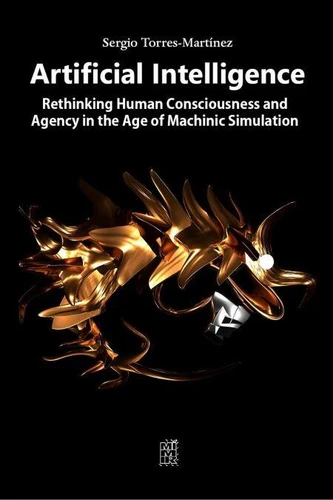Artificial Intelligence: Rethinking Human Consciousness and Agency in the Age of Machinic Simulation. Artificial Intelligence, #1
Par :Formats :
Disponible dans votre compte client Decitre ou Furet du Nord dès validation de votre commande. Le format ePub protégé est :
- Compatible avec une lecture sur My Vivlio (smartphone, tablette, ordinateur)
- Compatible avec une lecture sur liseuses Vivlio
- Pour les liseuses autres que Vivlio, vous devez utiliser le logiciel Adobe Digital Edition. Non compatible avec la lecture sur les liseuses Kindle, Remarkable et Sony
- Non compatible avec un achat hors France métropolitaine
 , qui est-ce ?
, qui est-ce ?Notre partenaire de plateforme de lecture numérique où vous retrouverez l'ensemble de vos ebooks gratuitement
Pour en savoir plus sur nos ebooks, consultez notre aide en ligne ici
- FormatePub
- ISBN8230735274
- EAN9798230735274
- Date de parution13/01/2025
- Protection num.Adobe DRM
- Infos supplémentairesepub
- ÉditeurIndependently Published
Résumé
The rise of generative AI (GenAI), exemplified by ChatGPT and Claude, has triggered profound debates about technology's impact on humanity. These systems, while powerful, lack embodied cognition, challenging assumptions about agency, creativity, and intelligence. This book critiques reductive narratives equating computational fluency with understanding, emphasizing the biological and intentional roots of human consciousness.
It explores epistemological limits, ontological differences, and ethical considerations of AI, while rejecting hyperbolic claims of machine transcendence. By addressing AI's implications for language, creativity, and posthumanist thought, it reaffirms the irreplaceable role of embodied, intentional agency in defining humanity amidst technological upheaval.
It explores epistemological limits, ontological differences, and ethical considerations of AI, while rejecting hyperbolic claims of machine transcendence. By addressing AI's implications for language, creativity, and posthumanist thought, it reaffirms the irreplaceable role of embodied, intentional agency in defining humanity amidst technological upheaval.
The rise of generative AI (GenAI), exemplified by ChatGPT and Claude, has triggered profound debates about technology's impact on humanity. These systems, while powerful, lack embodied cognition, challenging assumptions about agency, creativity, and intelligence. This book critiques reductive narratives equating computational fluency with understanding, emphasizing the biological and intentional roots of human consciousness.
It explores epistemological limits, ontological differences, and ethical considerations of AI, while rejecting hyperbolic claims of machine transcendence. By addressing AI's implications for language, creativity, and posthumanist thought, it reaffirms the irreplaceable role of embodied, intentional agency in defining humanity amidst technological upheaval.
It explores epistemological limits, ontological differences, and ethical considerations of AI, while rejecting hyperbolic claims of machine transcendence. By addressing AI's implications for language, creativity, and posthumanist thought, it reaffirms the irreplaceable role of embodied, intentional agency in defining humanity amidst technological upheaval.






